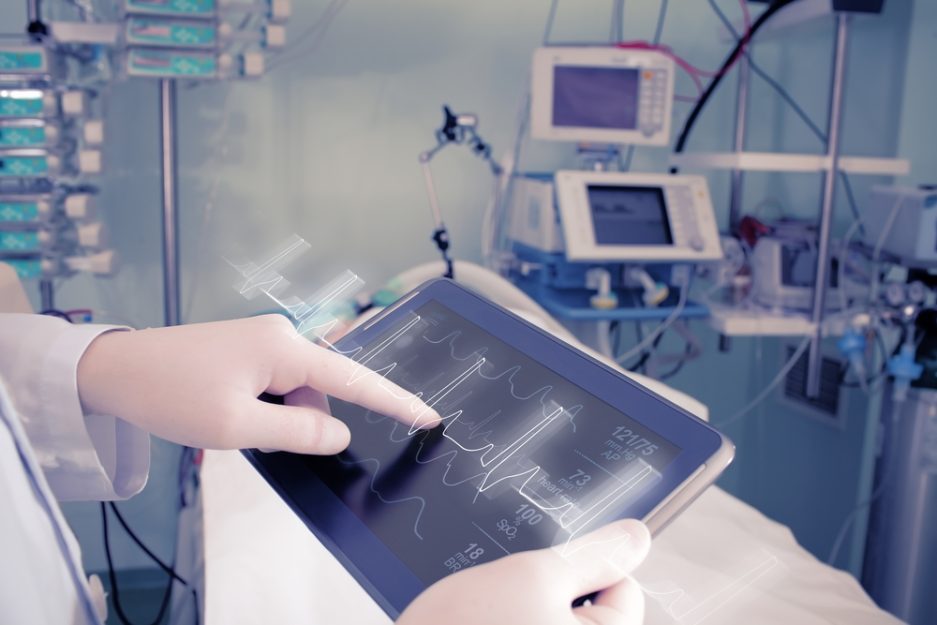What Is Actually Being Detected by an ECG Test?

An Electrocardiogram is a simple, painless procedure that measures electrical signals in your heart. An ECG or EKG can detect if the heart is beating at an average rate. The person can have heart disease if there is an abnormal EKG report. An electrocardiogram or ECG uses electrodes attached to the chest and limbs to monitor and detect the heart’s electrical activity. A computer records and translates the information into a wave pattern. Ecg is a noninvasive test that doesn’t require any cut or incision. An EKG can be conducted while lying down, resting, or exercising, which is part of a stress test or event monitoring.
An ECG is the standard test for assessing heart conditions and only takes a few minutes to complete. The electrical activity causes contractions of the heart muscle, which results in the heart’s pumping action. ECG waves are recorded on paper as spikes and dips. The cardiologist assesses the patterns, and your doctor can gauge the rhythm and the rate of your heartbeat.
What Does An ECG Detect?
An ECG test can be done as part of a routine checkup or before surgery to check how well your heart is working. An ECG is conducted :
- If a person has other diseases such as diabetes, high blood pressure, high cholesterol, or a family history of early heart disease.
- If the person has symptoms that may indicate a problem with the heart, such as rapid and irregular palpitations and chest pain.
- To find if the walls of the chambers are too thick.
- ECG is done to monitor how well the medicines are working and to see if they are causing side effects that are affecting the heart.
- Assess how well the implanted mechanical devices are working, such as pacemakers.
- Assess the rhythm of the heart if you have an arrhythmia.
- ECG can diagnose poor blood flow to the heart muscle if there is coronary artery disease.
- It can diagnose a heart attack.
- If the person has been diagnosed with specific abnormalities like heart chamber enlargement and abnormal electrical conduction.
- It can detect heart failure.
Why Do People Need An EKG Test?
A person needs an EKG test if they show symptoms of a heart disorder like :
- If a person complains of chest pain
- If they have a rapid heartbeat
- If a person may feel like their heart has skipped a beat or is fluttering
- If shortness of breath or dizziness is experienced
- If the person complains of fatigue
- A doctor can ask for an EKG test to see the heart’s condition if he has a pacemaker.
- If a patient has started taking medication for heart disease.
- If a patient had a heart attack earlier.
- Before an upcoming surgery, see if the patient is fit.
Specialized ECG Tests
ECG test can be recorded while you are lying down or resting, sometimes fail to provide enough information, so your doctor may ask you for a more specialized ECG test :
# Exercise ECG or Exercise Tolerance Test
ETT records the ECG while the person is exercising. It is also called a stress test or a treadmill test. The person is asked to either walk on a motor-driven treadmill or pedal a stationary bicycle. A resting ECG is always done before an exercise test, and the results of the resting ECG are compared with that of the exercise ECG. Some heart problems only appear when your heart works harder. This test also shows how your heart copes under stress.
# Cardiac Holter Monitoring Test
Holter ECG records the heart’s electrical activity while you carry out the usual activities. Heart problems can be ascertained only during certain activities like exercise, eating, bowel movements, and sleeping. A constant 24-hour recording is conducted to determine the abnormality of the heartbeat during these activities. A small, portable ECG machine should be worn for a day, recording the heart rate and rhythm.
# Event Monitoring
This ECG test records the heartbeat when a person experiences symptoms like dizziness, blackouts, chest pain, or palpitations. When a person experiences these symptoms, you have to press a button to start recording the heartbeat.
The diagnostic center provides all the necessary arrangements to conduct an ECG. To look for more search ‘ECG at home near me’.
What Are The Benefits Of A Portable ECG Machine At Home?
Personalized ECG machines can closely read the heart rate and rhythm. The machine has leads or contact points attached to your body. Clinical ECGs use 12 leads and are sensitive to the human body. Some experience uneasiness or other problems. But the ECG is conducted at home; there are some benefits:
- The person will not face any anxiety which they feel in a hospital environment.
- The ECG is very convenient and saves time.
- You can get Individual attention without any interruption, and it provides the most accurate readings.
- Professionals trained health care assistants to conduct the ECGs in the comforts of the home.
- The risk of hospital-acquired infection will be negligible.
- ECG at home is a good option for elderly people and people with comorbidity or severe illness because moving or transporting these patients to the hospital or diagnostic centers is difficult.
How Does An ECG Work?
Electrodes or sensors placed on the chest, legs, and arms send data through wires to a computer that uses the information to make a wave chart showing the heart’s electrical activity.
What Are The Preparations For An ECG?
ECG test is conducted, and there are no special preparations before a test. People are advised to avoid exercise. Physical activity, such as climbing stairs or exercise, may affect the results. Inform your physician about the medicines that you are taking for the heart. People are advised not to apply greasy skin creams and lotions on the day of the test. You can wear a loose shirt so the leads can be placed easily on your chest.
To know more, contact the diagnostic center. They provide ecg at home and all other blood tests. An ECG is a quick and pain-free test to evaluate the heart. Some personal ECGs might not pick up brief changes in your heart rhythm, so it is crucial to get regular checkups and inform your doctor about any symptoms and your ECG readings.




